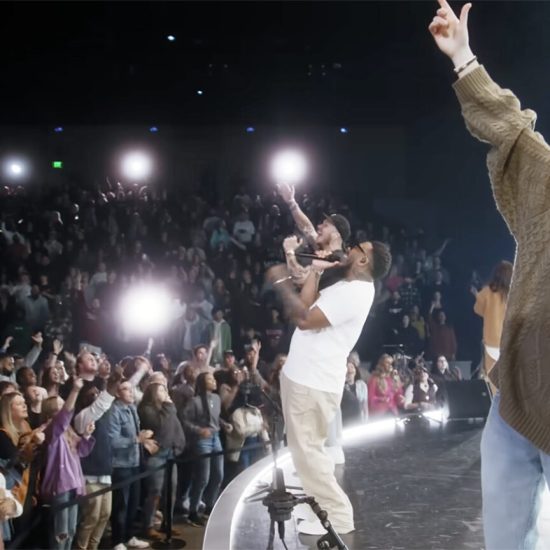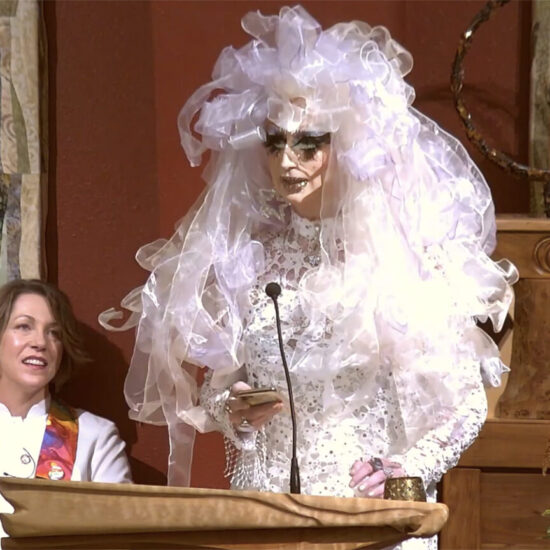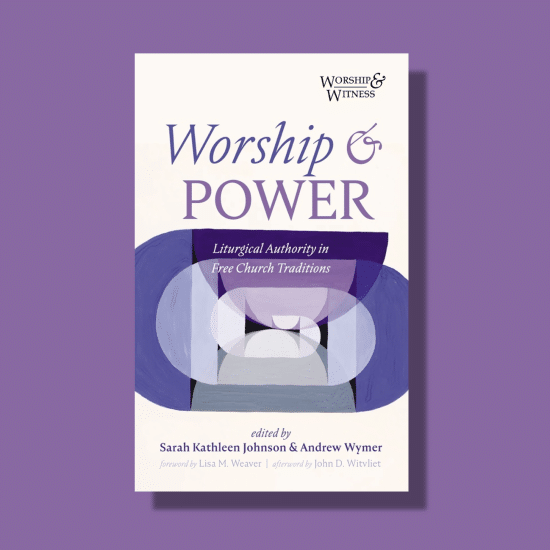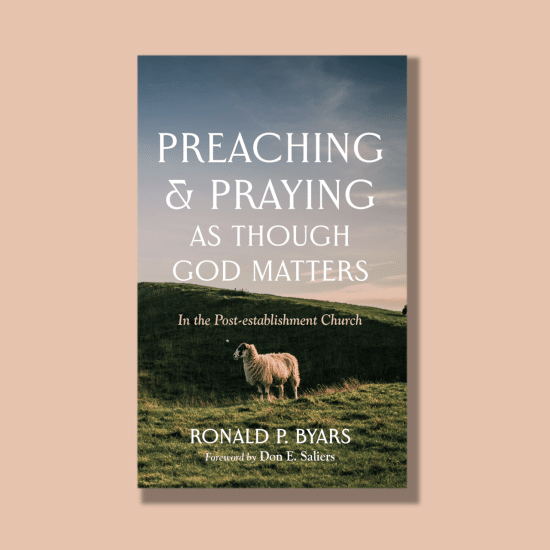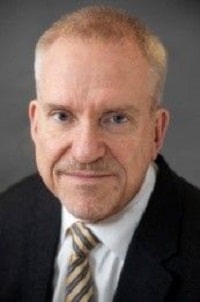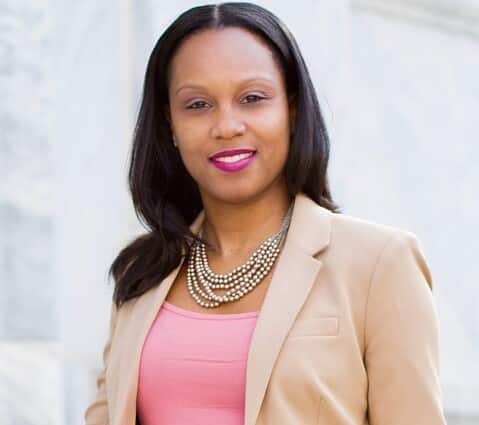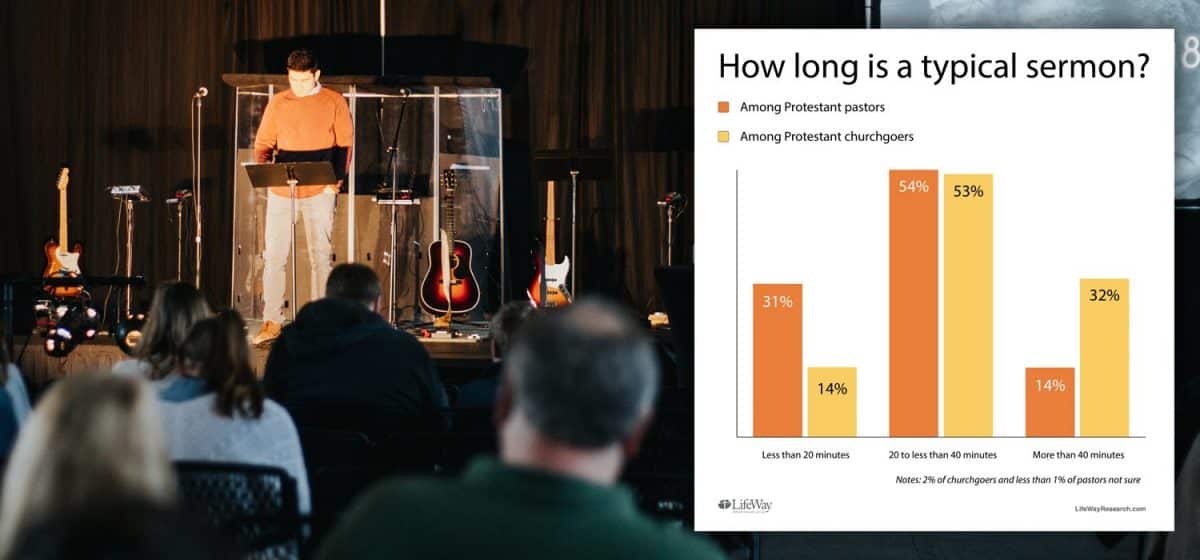
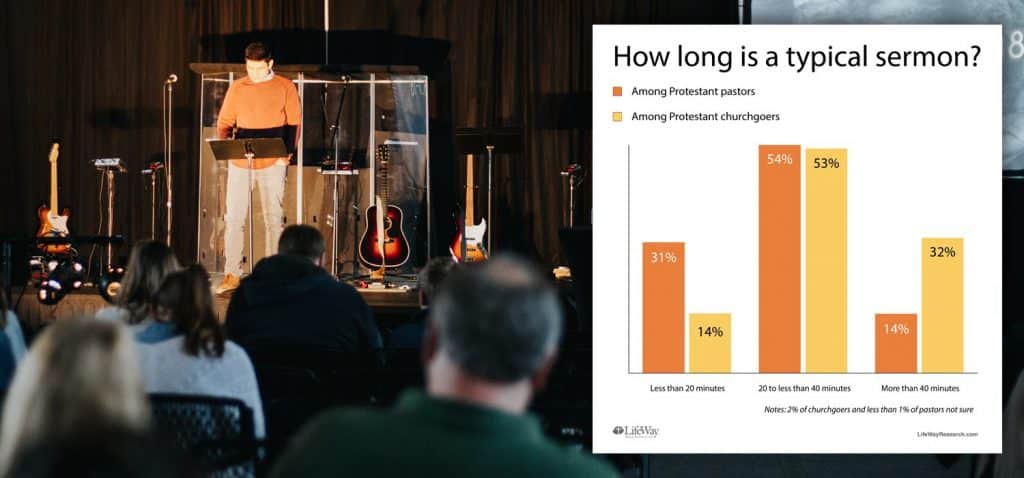
(IMB photo)
NASHVILLE (BP) — When pastors begin to welcome back their congregations to in-person services, they may want to consider offering them a shorter sermon.
A study from Nashville-based LifeWay Research found Protestant pastors’ estimates of their sermon lengths are shorter than the estimates of their congregations. Additionally, more than a quarter of churchgoers say their pastor typically preaches longer than they prefer.
“As churches restart in-person worship services and other church activities, many are calling for churches to refocus on the essentials,” said Scott McConnell, executive director of LifeWay Research. “Prior to the pandemic, that would have meant shorter sermons for some churchgoers.”
In the two surveys, conducted in September 2019, churchgoers and pastors have different ideas of how long the sermons run each Sunday.
Pastors’ perspective
When asked how long their typical sermon is, 85 percent of Protestant pastors say it is less than 40 minutes. The most common lengths of sermons according to pastors are 15 minutes to less than 20 minutes (22 percent), 20 minutes to less than 30 minutes (26 percent), and 30 minutes to less than 40 minutes (28 percent).
Few say they deliver sermons that are shorter than 15 minutes (9 percent) or longer than 40 minutes (14 percent).
White pastors are more likely to deliver sermons that are shorter than 20 minutes, while African American pastors and those of other ethnicities are more likely to say their typical message lasts at least 40 minutes.
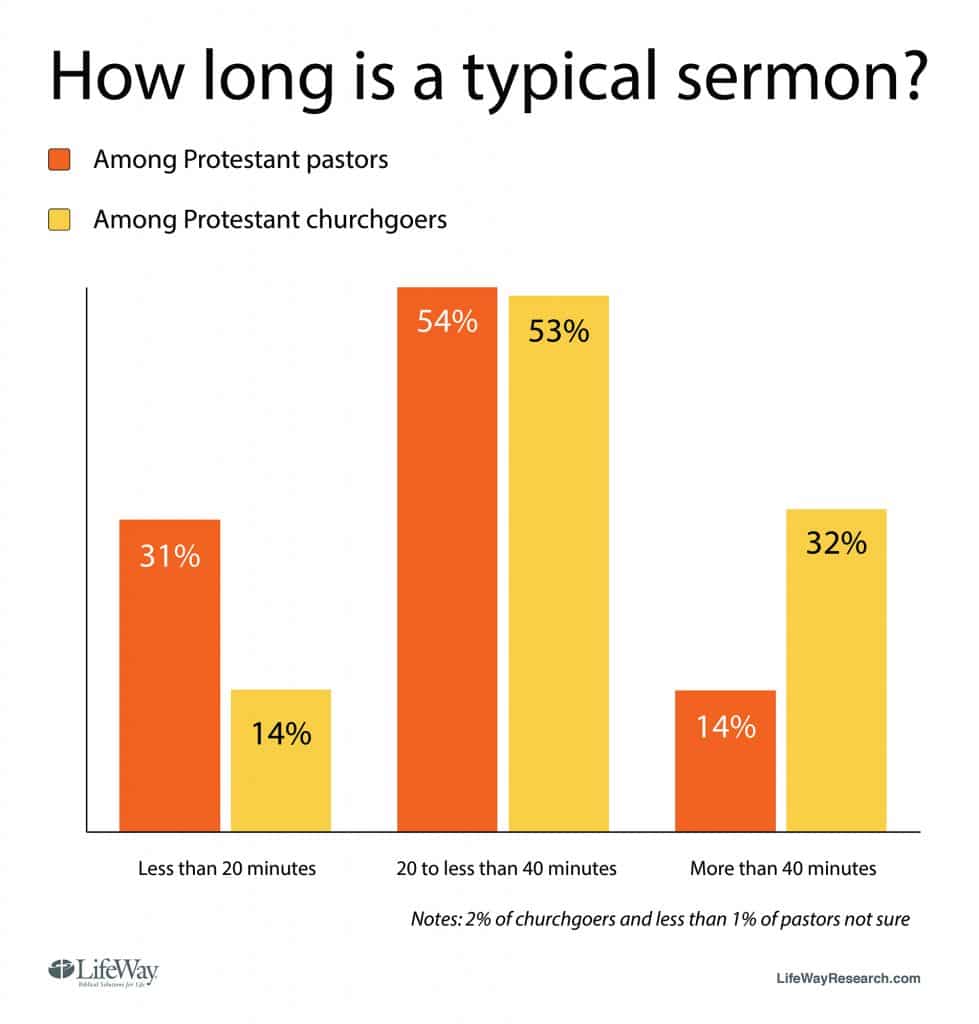 Pastors with a master’s (42 percent) or doctoral degree (34 percent) are more likely to deliver a less than 20-minute sermon compared to those with less formal education (10 percent).
Pastors with a master’s (42 percent) or doctoral degree (34 percent) are more likely to deliver a less than 20-minute sermon compared to those with less formal education (10 percent).
Those with a bachelor’s degree or no college degree (24 percent) are more likely to preach at least 40 minutes than those with advanced degrees (10 percent).
Mainline pastors (54 percent) are more likely than evangelical pastors (17 percent) to say their sermons are shorter than 20 minutes.
Denominationally, Lutheran (86 percent), Methodist (52 percent) and Presbyterian/Reformed (47 percent) pastors are more likely to say their sermons are shorter than 20 minutes compared to Restorationist movement (18 percent), Pentecostal (3 percent) and Baptist (2 percent) pastors.
The smaller the church, the shorter the sermons, according to the pastors’ responses. Those at churches with attendance fewer than 50 (43 percent) and attendance between 50 and 99 (35 percent) are more likely to preach less than 20 minutes than those at churches of 100 to 249 (23 percent) and pastors at churches of 250 or more (21 percent).
“Pastors have a wide range of styles when it comes to sermon length,” said McConnell. “However, the clear differences by denomination and church size indicate many churches themselves have different traditions when it comes to the length of sermons.”
Churchgoers’ opinions
While 85 percent of Protestant pastors say their sermons are shorter than 40 minutes, 66 percent of Protestant churchgoers say the same.
The largest gap between the perception of pastors and that of churchgoers lies toward the two extremes.
Protestant churchgoers (11 percent) are half as likely to say their pastor typically preaches 15 minutes to less than 20 minutes as pastors (22 percent) are to say their sermons are that length.
Churchgoers (12 percent) are six times more likely than pastors (2 percent) to say the typical sermon lasts at least an hour.
“Some sermons feel like they are longer than the pastor estimates,” McConnell said. “Churchgoers report sermons over 40 minutes in both small and large churches, but that could be related to different definitions of what elements of the church service are included in the sermon. For example, pastors may give announcements, do a Scripture reading and conduct an altar call surrounding the sermon, which may lead to congregants feeling as if the message itself is longer.”
Most churchgoers say their sermon length preference falls between 20 and 40 minutes. Around a quarter (27 percent) say they best like sermons that last 20 minutes to less than 30 minutes. Similar numbers (25 percent) say their preference is a message that lasts from 30 to less than 40 minutes.
Not many churchgoers say they want sermons shorter than 20 minutes. Close to 1 in 7 churchgoers (14 percent) say they prefer 15 to less than 20-minute sermons. Few (3 percent) say their preference is less than 15 minutes.
Some churchgoers, however, say they like longer sermons best. Around 1 in 10 (9 percent) prefer 40- to less than 50-minute messages, with 5 percent saying their preference is 50 minutes to less than an hour. Close to 1 in 8 churchgoers (12 percent) want to sit down on Sundays for a message that tops an hour.
Whatever their preference, most churchgoers (55 percent) say their pastor fits in that timeframe.
If congregants want a change to their pastor’s sermon length, it’s probably for it to be shorter. Churchgoers are twice as likely to say their pastor’s typical sermon is longer than they prefer (27 percent) than they are to say their pastor’s typical sermon is shorter than they prefer (13 percent).
“Many pastors have likely been preaching shorter sermons while their churches have met virtually,” McConnell said. “More than a quarter of churchgoers would prefer such shorter sermons when they return to meeting in person.”
For more information, visit LifeWayResearch.com or download the pastors report and churchgoers report.
Methodology
The phone survey of 1,000 Protestant pastors was conducted Aug. 30-Sept. 24, 2019. The calling list was a stratified random sample, drawn from a list of all Protestant churches. Quotas were used for church size. Each interview was conducted with the senior pastor, minister or priest of the church called.
Responses were weighted by region to more accurately reflect the population. The completed sample is 1,000 surveys. The sample provides 95 percent confidence that the sampling error does not exceed plus or minus 3.3 percent. Margins of error are higher in sub-groups.
The online survey of 1,002 American Protestant churchgoers was conducted September 20-27, 2019 using a national pre-recruited panel. Respondents were screened to include those who identified as Protestant/non-denominational and attend religious services at least once a month.
Quotas and slight weights were used to balance gender, age, region, ethnicity, and education to more accurately reflect the population. The completed sample is 1,002 surveys. The sample provides 95 percent confidence that the sampling error from the panel does not exceed plus or minus 3.2 percent. Margins of error are higher in sub-groups.

